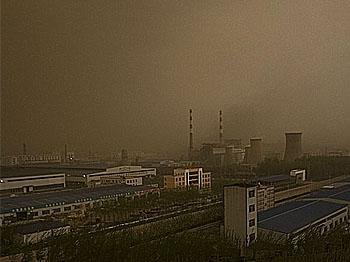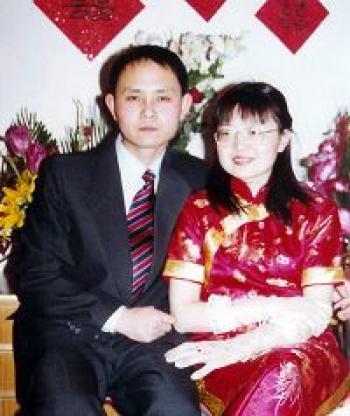The Department of Sociology at Tsinghua University in Beijing recently published a report stating that the Chinese government has become more unstable while it increasingly relies on force to maintain social stability.
The document, titled New Concept of “Stability Preservation:” Realizing Long-term Peace and Stability through Allowance for Free Expression of Interests, presents an analysis and an argument for creating an institution for the “expression of interests.” The absence of such an institution is considered the crucial factor behind the growing social instability within the country.
The report outlines the urgency of the high-priority issues that have continued to escalate in magnitude and depth for Chinese authorities in recent years—issues that revolve around the maintenance of social stability in the face of social conflicts, social unrest, and mass uprisings throughout the country.
“Many studies show that the absence of an effective mechanism for interest expression is the primary factor contributing to social conflicts and upheavals,” the document states. Without an effective outlet for people to express their interests, unresolved conflicts will accumulate in an increasingly unstable society.
The growing social disputes stemming from violations of human rights and property rights, predominantly related to forced evictions, subsequent demolitions, and unpaid wages, are described as the leading causes of instability in China today. These social conflicts are described as “the outcome of interest battles: In reality, they are conflicts of interest under the category of divergent interests among people,” the report maintains.
The pattern for maintaining social stability in China has been to effect temporary stability by suppressing and sacrificing the interests of disadvantaged groups. This has brought about a temporal solution, but has also safeguarded vested interests, ultimately doing more harm to what is just for society.
The report suggests utilizing a different paradigm for stability preservation. “We should safeguard civic rights as prescribed by the Constitution, and protect legal rights to achieve relative interest equilibrium. Equilibrium of interests is essential to social stability.”
“The fundamental solution to the problem of social stability lies in the institutionalization of the expression of interest. In this regard, rights defense is equivalent to stability preservation: the defense of rights can maintain stability in the society,” according to the report.
Some rights activists and scholars are arguing that the efforts for stability preservation that are enforced by the communist regime could not result in social stability, nor can they be maintained.
According to a report in China Digital Times, Sun Liping, a sociology professor at Tsinghua University, suggested that the authorities’ pre-occupation with social conflict is the wrong mindset.
He maintains that the biggest threat is not instability, but social decay. (http://chinadigitaltimes.net/2009/03/sun-liping-%E5%AD%99%E7%AB%8B%E5%B9%B3-the-biggest-threat-to-china-is-not-social-turmoil-but-social-decay/)
“To safeguard vested interests, we suppress the rightful expression of opinions from the public, leading to numerous mass uprisings.”
Consequently, he says, we have had to devote vast manpower and resources to tackling the problems created by these incidents.
According to a report in ChinaGeeks.org, Leung Man Tao, a recognized media professional from Hong Kong, thinks that the obsession with ‘rigid stability’ is a denial of the demand for the recognition of the identity rights of citizenship.
He believes that the regime should not be too rigid in dealing with rights activists who are only fighting for their rights. There is no need to raise such conflicts to a political level.
(http://chinageeks.org/2010/04/stability-preservation-in-china/).
Beijing rights activist Fan Yafeng told Radio Free Asia (http://www.rfa.org/cantonese/news/china_stability-04202010113045.html), that only the defense of rights can truly maintain social stability. Currently, the violation of human rights has created the worst situation in decades in China. He argued that the underlying institution of stability preservation has, in fact, become a mechanism to safeguard the vested interests that have materialized under authoritarian capitalism.
Sun Liping points out that as a result of having taken a variety of measures to “maintain stability,” the necessary reforms to build a healthy society could not be advanced; as a result, social decay has only intensified.
He concludes by saying that history will ultimately prove that “stability” can not override all other concerns. It could even ultimately result in destroying everything. Such rigid adherence could stifle efforts, in the embryonic stage, which could make society fairer and healthier.
Read the original Chinese aricle.
The document, titled New Concept of “Stability Preservation:” Realizing Long-term Peace and Stability through Allowance for Free Expression of Interests, presents an analysis and an argument for creating an institution for the “expression of interests.” The absence of such an institution is considered the crucial factor behind the growing social instability within the country.
The report outlines the urgency of the high-priority issues that have continued to escalate in magnitude and depth for Chinese authorities in recent years—issues that revolve around the maintenance of social stability in the face of social conflicts, social unrest, and mass uprisings throughout the country.
Equilibrium of Interests
“Many studies show that the absence of an effective mechanism for interest expression is the primary factor contributing to social conflicts and upheavals,” the document states. Without an effective outlet for people to express their interests, unresolved conflicts will accumulate in an increasingly unstable society.
The growing social disputes stemming from violations of human rights and property rights, predominantly related to forced evictions, subsequent demolitions, and unpaid wages, are described as the leading causes of instability in China today. These social conflicts are described as “the outcome of interest battles: In reality, they are conflicts of interest under the category of divergent interests among people,” the report maintains.
The pattern for maintaining social stability in China has been to effect temporary stability by suppressing and sacrificing the interests of disadvantaged groups. This has brought about a temporal solution, but has also safeguarded vested interests, ultimately doing more harm to what is just for society.
The report suggests utilizing a different paradigm for stability preservation. “We should safeguard civic rights as prescribed by the Constitution, and protect legal rights to achieve relative interest equilibrium. Equilibrium of interests is essential to social stability.”
“The fundamental solution to the problem of social stability lies in the institutionalization of the expression of interest. In this regard, rights defense is equivalent to stability preservation: the defense of rights can maintain stability in the society,” according to the report.
‘Social Decay’ Evident
Some rights activists and scholars are arguing that the efforts for stability preservation that are enforced by the communist regime could not result in social stability, nor can they be maintained.
According to a report in China Digital Times, Sun Liping, a sociology professor at Tsinghua University, suggested that the authorities’ pre-occupation with social conflict is the wrong mindset.
He maintains that the biggest threat is not instability, but social decay. (http://chinadigitaltimes.net/2009/03/sun-liping-%E5%AD%99%E7%AB%8B%E5%B9%B3-the-biggest-threat-to-china-is-not-social-turmoil-but-social-decay/)
“To safeguard vested interests, we suppress the rightful expression of opinions from the public, leading to numerous mass uprisings.”
Consequently, he says, we have had to devote vast manpower and resources to tackling the problems created by these incidents.
According to a report in ChinaGeeks.org, Leung Man Tao, a recognized media professional from Hong Kong, thinks that the obsession with ‘rigid stability’ is a denial of the demand for the recognition of the identity rights of citizenship.
He believes that the regime should not be too rigid in dealing with rights activists who are only fighting for their rights. There is no need to raise such conflicts to a political level.
(http://chinageeks.org/2010/04/stability-preservation-in-china/).
Beijing rights activist Fan Yafeng told Radio Free Asia (http://www.rfa.org/cantonese/news/china_stability-04202010113045.html), that only the defense of rights can truly maintain social stability. Currently, the violation of human rights has created the worst situation in decades in China. He argued that the underlying institution of stability preservation has, in fact, become a mechanism to safeguard the vested interests that have materialized under authoritarian capitalism.
Sun Liping points out that as a result of having taken a variety of measures to “maintain stability,” the necessary reforms to build a healthy society could not be advanced; as a result, social decay has only intensified.
He concludes by saying that history will ultimately prove that “stability” can not override all other concerns. It could even ultimately result in destroying everything. Such rigid adherence could stifle efforts, in the embryonic stage, which could make society fairer and healthier.
Read the original Chinese aricle.


